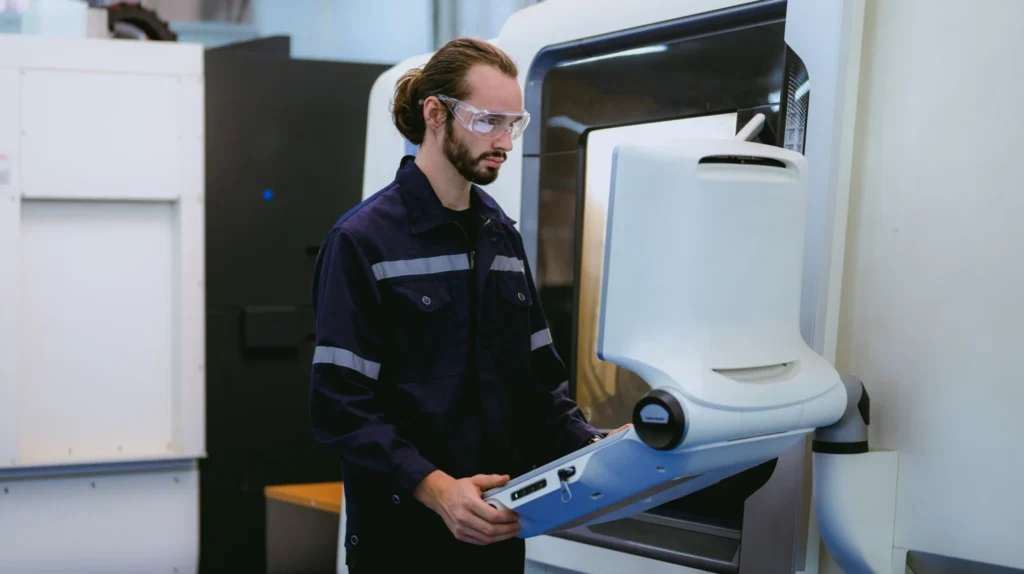Life Sciences Software Development
Life sciences companies face mounting pressure to innovate, streamline operations, and accelerate drug development. They must navigate complex clinical stages and enhance HCP engagement to successfully bring new treatments to market and improve patient outcomes. Avenga delivers tailored software solutions that help these companies - from pharma and biotech to Contract Research Organizations (CROs) - enhance the R&D process, digitalize clinical trial operations, elevate adverse events monitoring, and improve commercial operations quickly.

Our Industry Expertise
Discovery and Preclinical
Our drug discovery and preclinical services help address the inefficiencies of fragmented data, siloed collaboration, and limited integration across research processes. We help LS organizations integrate diverse data sources and leverage advanced analytics, data platforms, AI, generative AI, and automation to extract actionable insights and streamline various research workflows. Our services, as well as the models of cooperation, are tailored to the unique needs of each client.
Digital Clinical Trials
We help biopharma and CROs move from manual, error-prone clinical trial processes to efficient digital workflows. This results in shorter timelines, reduced errors, greater transparency, and much lower expenses. We empower companies to use digital solutions to enhance data management, accelerate patient recruitment, improve study design and planning, refine study cost estimations, and optimize site selection.
Drug Safety
We help life sciences organizations leverage AI and automation to streamline pharmacovigilance and drug safety processes. We build custom solutions that help them optimize case intake, processing, and regulatory submissions. By capitalizing on our AI expertise, LS companies can enable real-time safety monitoring and proactive signal detection and harness real-world evidence (RWE) to improve risk management and accelerate decision-making.
Marketing and Commercialization
Avenga’s experts assist life sciences companies in driving personalized, client-centric experiences. We help implement AI and data-driven strategies for omnichannel HCP engagement, use advanced data analytics to spot Key Opinion Leaders (KOLs), enhance CRM platforms with AI capabilities, and bridge digital technologies with real-time intelligence to improve team collaboration and effectiveness. Our goal is to enable these companies to use the latest tech to deliver more targeted and data-driven engagement with their customers.
Trusted Life Sciences Software Development Company for a Reason
610
Clients
6k
Experts
30+
Years of experience
Your Full-Cycle Life Sciences Technology Partner



Strategic roadmaps for advancing life sciences innovation and ensuring regulatory compliance. Planning out process automation and system integration, optimizing operations with tailored software solutions.
Segments We Serve
We assist biopharmaceutical organizations in elevating the entire product development lifecycle, from R&D to market launch and post-launch monitoring. We also enable them to utilize advanced technologies such as AI/ML and big data to fuel innovation.
We Can Help You With
Addressing expertise gaps
Access a wide range of engineers and tech experts with extensive backgrounds in creating platforms for clinical trials, drug research, commercialization, and more.
Fixing integration issues
Integrate various systems and employ advanced data analytics platforms to turn fragmented, unstructured data into actionable insights.
Boosting efficiency
Utilize cutting-edge technology like cloud computing, AI/ML, and automation to expedite and enhance various drug research, development, and commercialization processes.
Digitizing workflows
Move away from manual processes that are inefficient and prone to human error. Apply the latest tech to achieve high-impact results across the pharma value chain.
Strengthening collaboration
Enhance collaboration by enabling seamless data sharing throughout the ecosystem. Increase interoperability and achieve synchronization across various platforms.
Achieving compliance
Simplify trial workflows, data processing, and patient interactions while staying compliant with FDA 21 CFR Part 11, EMA, HIPAA, GDPR, and other complex regulatory standards.
Empowering Life Sciences with Technology
We have a lot of experience in integrating and optimizing platforms like Salesforce, Dynamics 365, SAP, Veeva CRM, various ESG and BPA systems.
Take the first step toward life sciences innovation excellence with Avenga.
Avenga Is a Trusted Life Sciences Ally
Avenga boasts an impressive track record, with a portfolio of successful projects for renowned life sciences organizations such as IQVIA, Boehringer Ingelheim, Syneos, GSK, Schwa Medico, ModMed, and others. We developed omnichannel HCP engagement products that are used by hundreds of pharmaceutical and medical device companies across major regions (NORAM, LATAM, EMEA, APAC).
Related Content
Your business results matter
Achieve them with minimized risk through our bespoke innovation capabilities. Fill in the form below.


